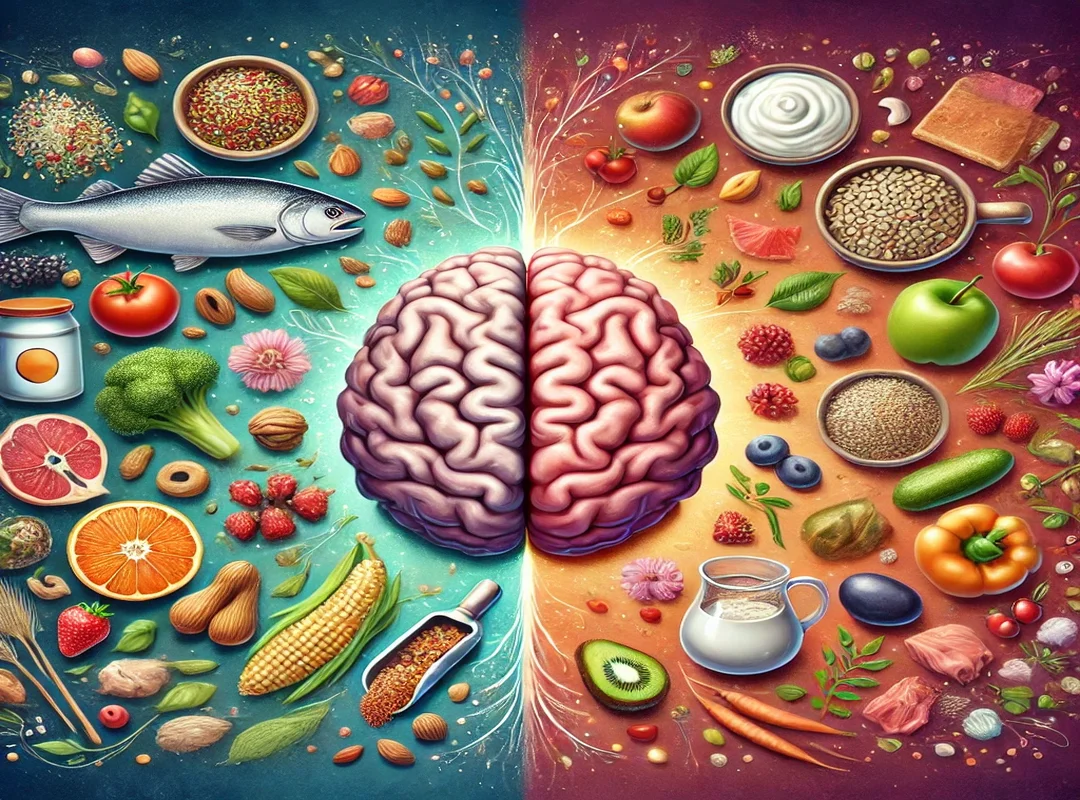There is a growing understanding that what we eat not only affects our physical health but also plays a significant role in our mental well-being. The connection between diet and mental health is a fascinating and often underrated aspect of holistic wellness. This relationship is a two-way street; our mental health can influence our food choices, and the food we consume can, in turn, impact our mental state.
A balanced diet that provides all the necessary nutrients is crucial for optimal brain function. Studies have shown that certain vitamins and minerals, such as B vitamins, omega-3 fatty acids, and zinc, directly impact our cognitive abilities, memory, and mood regulation. For instance, omega-3 fatty acids, commonly found in fish, nuts, and seeds, are essential for brain structure and function. A deficiency in these fatty acids has been associated with depression, anxiety, and other mental health disorders. Moreover, a regular supply of complex carbohydrates helps maintain a healthy level of serotonin, a neurotransmitter that contributes to feelings of happiness and well-being.
In contrast, a diet high in processed foods, saturated fats, and sugar can negatively impact mental health. These foods may provide temporary satisfaction, but they often lead to long-term nutritional deficiencies and imbalances in the body’s natural chemical processes. Processed foods can trigger inflammation in the body, which, over time, can affect the brain’s functionality and contribute to mental health issues.
The ‘gut-brain connection’ is another fascinating aspect of this relationship. Recent research has shown that our gut microbiome, the vast ecosystem of microorganisms living in our digestive tract, communicates with our brain. Gut health can influence our mental state, and an imbalanced gut microbiome may contribute to mental health disorders. Probiotics and prebiotics, found in foods like yogurt, kimchi, and whole grains, can nurture a healthy gut and, by extension, support positive mental health.
The benefits of a healthy diet on mental health are particularly notable in individuals with conditions like depression and anxiety. Nutritional psychiatry is an emerging field focusing on treating mental health disorders through dietary changes. Studies have shown that improving nutritional status can reduce symptoms of these disorders, sometimes even replacing the need for medication.
Incorporating a healthy diet can also be a powerful tool in managing stress and promoting overall well-being. Stress can lead to unhealthy eating habits, but a balanced diet can help regulate hormones, stabilize blood sugar levels, and ultimately, improve our ability to cope with stressful situations.
Awareness of the diet-mental health connection is essential for everyone, but it’s particularly crucial for those at risk of mental health issues or those with a history of mental health disorders. Making informed food choices can be a challenging yet rewarding journey, requiring patience and persistence.
Starting with small changes, such as adding more fruits and vegetables to your diet or reducing processed food intake, can make a significant difference. Consulting with a healthcare professional or a registered dietitian can provide personalized guidance.
Remember, the goal is not perfection but progress. Each positive dietary choice contributes to better mental health and overall wellness. The impact may not be immediate, but over time, a healthy diet can significantly improve your mental and emotional resilience.
The connection between diet and mental health is a powerful relationship that deserves our attention. It highlights the importance of treating our bodies and minds as interconnected systems, where one cannot be healthy without the other. By nurturing our bodies with the right nutrients, we can support not only our physical health but also our mental health and overall quality of life.


